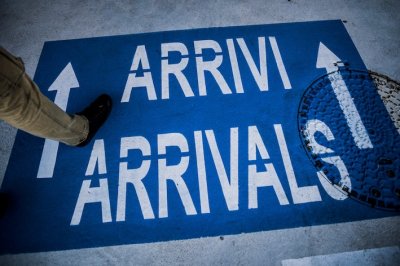Reverse Culture Shock – What Happens When You Go Home?

photo by Kipras Streimikis for Unsplash
by Liz Szalai
Living abroad for an extended period is more common than ever before, whether it is for studying, working, volunteering, or exploring. Not to mention the expanding groups of digital nomads in various parts of the world. But what happens when we pack our bags and return (for whatever reason) to our initial home country? Can we end up with ‘reverse culture shock’?
What is culture shock?
According to the website of the UK Council for International Student Affairs, culture shock can affect anyone. The cause of culture shock can be the new environment, climate, culture, people, and language. It can also arise from contributing factors like being away from our family, friends and familiar surroundings.The Council speaks about a U-curve model of 5 stages.
- Honeymoon: excitement with the new place, enjoying the differences.
- Distress: feelings of confusion and isolation or inadequateness, as we are getting more familiar with the culture, and realise our safety net is not so close.
- Reintegration: feelings of anger and frustration, up to hostile feelings towards the new culture, this is a healthy stage of re-owning and reconnecting to our original values.
- Autonomy: as our experiences of the new culture expands, we feel more comfortable, and we have more skills to cope.
- Independence: we can value the differences and similarities, and we can reach our full potential dealing with most situations.
And what is reverse culture shock?
photo by Megan Nixon for Unsplash
Reverse culture shock is feeling a similar pattern of emotions when we return to our home country after an extended time abroad. Suddenly, it is what we used to know that feels foreign and leaves us feeling out of place.
You adapted to another culture, now you have to re-adapt to the old one. According to a book on reverse culture shock, The Art of Coming Home by Craig Storti, you might also experience four different stages than you see in regular culture shock. These are:
- Criticality – You may suddenly have a lot of criticisms of your own country, and feel frustrated and impatient with others. And you might constantly compare the positive things about where you were living with the worst things about your home country.
- Marginality – Your identity might be less normal and mainstream now you understand more about the world at large. You might feel you no longer fit in.
- Overexertion/Exhaustion – Everything can seem to take a lot of energy, even small things, as you readjust.
- Resistance/Withdrawal/Self-Doubt/Depression – The more you see the flaws in the culture you used to just accept, the more you might resist adapting to it. It might feel easier to withdraw, to live in your memories or create fantasies of your other life abroad. This can all lead to depression.
Why am I experiencing reverse culture shock and my friend isn’t?
It’s a personal experience. And according to the US Department of State, the intensity of our re-entry experience can depend on additional factors. These include if we willingly decided to move back home or were forced, how long we were away, how different the other culture was, and also how old we are.
It is also a question of how our home countries changed while we were away. In today’s world, buildings, shops and public spaces are transforming rapidly. We might feel like we are not even in the same place.
Plus, we might be in a difficult transition period that doesn’t help. For example, if we have to live with the in-laws before our new place to live is ready.
When what has changed is… you

photo by Karolina Grabowska for Pexels
Another important element in why we can feel ill at ease returning home is that we ourselves have changed during our time abroad. Our values, our openness to other cultures, our tastes, etc., can make us feel very different from the people we left behind that we once shared so much with.
There is an interesting study investigating how living abroad influences our self-concept. While the study only looked at those on overseas MBA programs, it did find an interesting set of data showing that when we live abroad it allows us to reflect on our own values and beliefs. The result is that we have a clearer, more stable, and lasting sense of self. This then lead to a stronger sense of what participants wanted their career to be.
Interestingly, this self clarity came with time. If you travel quickly from place to place this benefit is unlikely, it was more common in those who were in a place for three or more years.
How can reverse culture shock affect you?
More research needs to be done, especially as most studies to date have been done on students. One often quoted study looked at American student pharmacists returning from an 8-week placement in Kenya.
The study found that some of the students experienced anxiety, trouble in school, and relationship difficulties on their return. Participants reported that they felt misunderstood by people who had never had such an experience, and upset with American wealth.
On the other side of the coin, a more recent study on PhD students returning to Saudi Arabia from the States found that participants had internal conflict and developed negative feelings toward their home country. They often dreamt about leaving their country again.The study also revealed that if your home country has difficult bureaucracy or is in financial stress, these uneasy feelings can be stronger.
5 tips to overcome the effects of reverse culture shock
There are some things we can do to overcome the stressful feelings of reverse culture shock, even before returning home.
1. Keep in touch while abroad.
If we stay in touch with our friends and family, and follow the events in our home country, we will feel more connected when we return.
2. Keep the memories alive.
Bring something back from the country you visited. Cook the food, have something representing their culture, listen to music from there, etc.
3. Find groups where you can share the experiences
Sharing experiences with people who went through similar times can help, as they understand what you lived through. In yet another study on American students, it was concluded that after returning home from abroad those who had communication with peers who had intercultural experiences as well felt more at ease.
4. Help others.
Get involved with the community you now find yourself in again. Look around if there are opportunities to volunteer at organisations that support intercultural experiences. Or host/guide someone from abroad.
5. Look at your country with a fresh eye.
Explore your country with a new eye. Appreciate its values and beauty, be a tourist. Visit places you have never been to, discover things to do and find comfort in your new experiences.
Can’t get over reverse culture shock and need to talk to someone who gets it? We connect you with a team of highly rated expert talk therapists in central London. Or use our sister site to find affordable registered therapists who can help.
 Liz Szalai is a freelance writer with a Master’s in psychology who recently moved back home after many years abroad. Find her at @lizszalaiwriter.
Liz Szalai is a freelance writer with a Master’s in psychology who recently moved back home after many years abroad. Find her at @lizszalaiwriter.





